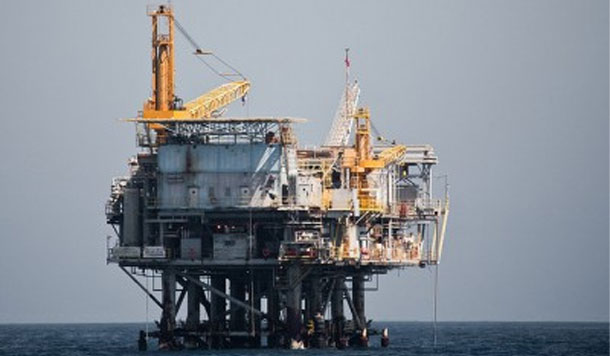By TN Ashok Economics Editor
New Delhi, March 27 : DR Daniel Yergin, Vice Chairman of IHS Energy, oil industry’s authoritative provider of information, analytics and insights, today predicted that oil prices could crash further in the year ahead as US domestic production of oil and gas (especially shale gas) could rise further by another half billion barrels and gas equivalent. He however did not put a number or price or percentage fall of crude oil price in the international market.
IHS, a US based consultancy, help clients understand the complex environment that shapes energy markets and asset performance. IHS experts and analytical tools enable clients to continuously improve their strategy and operations across the entire energy value chain, covering oil & gas, coal, power and renewables.
However, DR Yergin pointed out it would be less than the current US $ 55 per barrel which had marginally shot up to US $ 58 per barrel due to the civil strife in Yemen and the standoff between Saudi Arabia and Iran on the tense geo political situation in the gulf. It could sink to US $50 or even below that, the renowned oil expert, author of several books and publications on the oil sector said.
United States is the main reason for crashing oil prices last year and this year as it had increased domestic oil and gas production to over 4.2 billion barrels a day, larger than what any of the OPEC countries barring Saudi Arabia can singly produce in a day. Also, China , which normally accounts for 40% of global oil and gas consumption, dropped its demand and imports considerably because of the sluggish growth in its economy.
The United States has been consistently reducing its imports, DR Yergin pointed out saying crude oil imports shrunk from 60% in 2005 to 25% in 2015. He was speaking at the Urja Sangram ( Energy Conclave) 2015 organised by the Ministry of Petroleum and Natural Gas to commemorate the 50th anniversary of the founding of state owned companies such as Engineers India Ltd, ONGC Videsh Ltd (OVL) and the Barauni Refineries of IOCL.
India on the contrary, he said, had enhanced its oil imports from 70% to 80% over a year and from 17% in 2005 to 35% overall in a period of about ten years till today.
Reasons for the sudden spurt in oil prices to around US $ 100 dollars a day a couple of years ago were not far to seek , Dr Yergin said adding that demand was more than supplies and Iran oil had gone out of the market following US sanctions on that country. The uprising in the arab world more popularly known as the Arab Spring was also another cause.
So OPEC countries production of which was dominated by Saudi Arabia which controlled production and supply had optimistically felt that US $ 100 a barrel would be the benchmark price for most countries to buy crude for some time to come. But the prolonged after effects of recession rocking mostly Europe and China, the biggest consumer of oil in the world, had shrunk the economies and their GDP growth. In fact China’s sluggish growth has directly dealt a serious blow to the prices of most commodities in the world.
China is no longer the defining principle of the price mechanism of oil or the petroleum basket but its United States, DR Yergin pointed as it controlled oil supplies. Enhanced production by the USA has led Saudi Arabia and the OPEC to abandon its production cut backs as the world was now facing a glut in oil and low demand as most economies were struggling with growth globally.
Saudi Arabia which was controlling the international market prices has now decided to let the market forces to determine the international prices of oil, Dr Yergin pointed out. “ Saudi Arabia has resigned as the manager of the international market for oil prices , left it to market forces and there is no clear principle as to how international market prices are going to be determined now”, he said.
India and other developing economies have benefitted largely from the collapsing oil prices , he said adding India benefited to the tune US $ 50 billion in reduced import costs for the same amount of oil it was importing at double the cost a few years ago.
Given this context, Dr Yergin said, Energy Security for the globe or for each of the countries was largely dependent on the business security, access energy supplies, systems and regulatory frameworks and international business climate.
Business security meant protection of assets , commercial relations as between nations, as between a nation and its companies. Access to energy supplies was related to national policies of government and cooperation with production companies. “ But these are more feasibly today when compared to a few years ago”, he said.
Business climate meant the amount of investments made by governments or companies in energy development.
Dr Yergin said that most countries had to work on the assumption that there would be disruption in oil supplies and work on those principles while securing energy supplies. He was apparently referring to disturbances in Yemen and the Arab Spring last year that influenced oil prices this year and last year.
